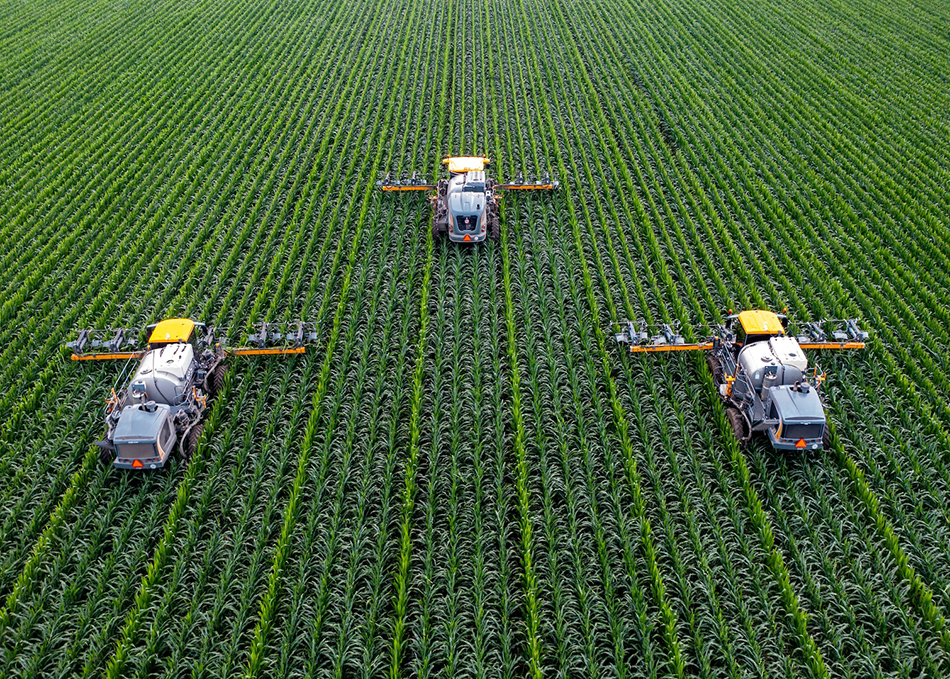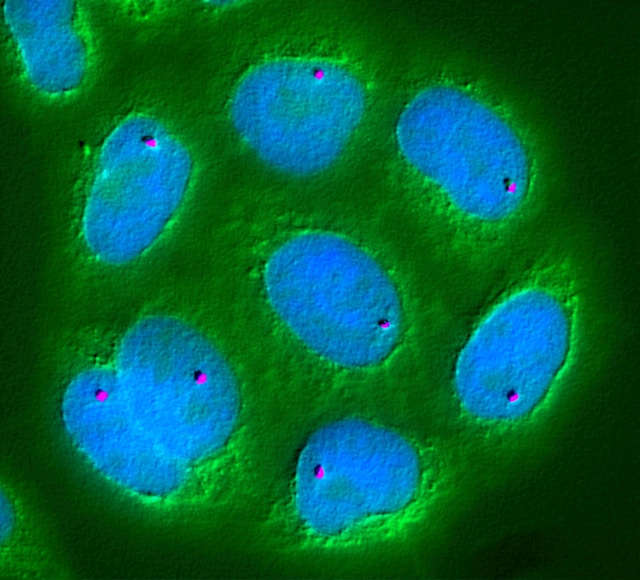With so many life-science advances starting on the farm, the 2023 Farm Bill, which sets U.S. agriculture policy for the next five years, is essential to enabling biotechnology innovation that helps us feed and fuel our world while protecting the environment.
That’s why the Biotechnology Innovation Organization (BIO) has a team working to ensure the Farm Bill that is eventually passed by Congress contains incentives to help grow the bioeconomy. It’s also what keeps John Torres, BIO Director of Federal Government Relations – Agriculture & Environment, busy these days.
“A big part of my job right now at BIO is to help shepherd the Farm Bill along so that we can grow the bioeconomy through agriculture, and that’s what we’re going to be focused on until we get it passed,” explains Torres.
Getting the job done this year may be challenging, Torres says. A draft of the bill is expected this summer, but political wrangling in the current Congress means passing any spending legislation will be difficult. Even if the vote is put off to 2024, BIO will work to shape the bill that ultimately passes, according to Torres.
BIO’s priorities for the Farm Bill include energy programs, reduction of regulatory barriers, and promotion of biobased products. All of BIO’s recommendations are driven by a desire to enable innovation in agricultural and environmental biotechnology.
“A Farm Bill centered on innovation stands to incentivize the adoption of cutting-edge technologies and practices, resulting in benefits to the environment and rural economies,” Beth Ellikidis, BIO VP of Agriculture and Environment, explains in a Nov. 15 statement sent to Senate Agriculture Committee leaders.
Specific BIO priorities for the upcoming Farm Bill:
A strong BioPreferred Program: The U.S. Department of Agriculture (USDA) BioPreferred Program promotes purchasing of biobased products in all federal agencies. BIO says the program has been hindered by limited funding and inconsistent participation. BIO also encourages development of the North American Industry Classification System (NAICS) for biopreferred products, to allow for clear definition of these products. Obtaining these NAICS codes requires cooperation between the USDA, the Department of Commerce, and the Office of Management and Budget.
“If we get USDA and Commerce to agree to develop NAICS codes for the BioPreferred Program, we can quantify the level to which the BioPreferred program is being utilized throughout the federal procurement system,” says Torres. “If you can’t measure it, how can you manage or promote it?”
Biostimulants: Plant biostimulants are biological substances, such as microorganisms, that are applied to seeds, plants, or soil around roots to enhance nutrient uptake and efficiency, tolerance to heat, drought or pests, crop quality, or yield. “These are important new tools to improve agricultural production sustainably and provide options for crop protection,” Torres says. “We’ve got to make sure that biostimulants are not subjected to unnecessary and unhelpful bureaucracy and regulation that makes it harder to get new products into the marketplace.”
The Biostimulant Act, proposed earlier this year, would define biostimulants and stipulate that products defined as biostimulants are not regulated under the Federal Insecticide, Fungicide, and Rodenticide Act (FIFRA), which is designed for certain types of chemicals. According to Torres, BIO is hopeful to see the language from the proposed Biostimulant Act in the Farm Bill.
Sustainable Aviation Fuel (SAF): A relatively newer type of biofuel, SAF offers the promise to dramatically reduce carbon emissions from airline travel. It can be used in regular jet engines, but less than 1% of aviation fuel is SAF, in part because of limited production. Meanwhile, airlines are rapidly adopting SAF and looking for more supply. Torres says greater federal support is needed to boost SAF production and use. “There’s been a lot of support for ethanol and soy-based biofuels for a long time. It’s time for us to get SAF up to speed,” he explains.
While the Biden Administration’s SAF Grand Challenge is promoting these fuels, Torres maintains that legislative support is needed. “We think the Farm Bill could be a great vehicle to add some incentives around the airline industry’s adoption of biofuels,” he says.
Biorefinery, Renewable Chemical, and Biobased Products Assistance Program: This program provides loan guarantees of up to $250 million to develop, build, or retrofit facilities to produce advanced biofuels and biobased products. “The program’s impact has been limited by lack of focus, onerous financing requirements, exclusion of commercially demonstrated technologies, and other restrictive aspects,” BIO says. BIO recommends doubling funding, widening eligibility, and other administrative improvements.
Biomass Research & Development Initiative: Created several years ago to coordinate research and development of sustainable biomass, this initiative was included in past farm bills but has run out of funding. BIO recommends mandatory funding of at least $10 million per year.
Monitoring, research, and market incentives for greenhouse gas reductions through biotech: Realizing the full potential of biotech solutions for the climate requires better tools that provide standardized measurements of greenhouse gas reductions. BIO recommends that the EPA obtain the expertise of the USDA in the area of biotech solutions for climate, to improve the way both agencies support innovation in this area.
In a related recommendation, BIO advocates reducing barriers for small farmers and forest owners to participate in voluntary, high-quality forest carbon markets. This is one of several policies in which BIO aligns with Farm Bill recommendations from the Food and Agriculture Climate Alliance (FACA). The Growing Climate Solutions Act, passed late last year, already encourages improvements in this area, but BIO hopes the Farm Bill can do more.
Another related recommendation shared by BIO and FACA calls for support to encourage more research into carbon sequestration and emissions reduction.
Better coordination among agencies: The USDA, Food and Drug Administration (FDA), and Environmental Protection Agency (EPA) can reduce regulatory obstacles and speed up decision making through improved cooperation. “You’ve got three agencies that have jurisdiction within the bioeconomy when it comes to plants, animals, and microbes. We just need efficient pipelines,” says Torres.
Streamlined regulation of biotech animals and plants: BIO is calling for a streamlined approach for USDA approval of animals and plants developed through biotech innovations. For animals, this means enabling technologies such as gene editing—so we can increase production per animal, protect animal health, and help animals adapt to more extreme weather patterns. For plants, it means eliminating obstructions to gene editing or other modern breeding techniques.
The route to passage
Sen. Debbie Stabenow (D-MI), Chair of the Senate Agriculture Committee and a veteran of several farm bills, has promised a draft of the 2023 Farm Bill will be ready some time this summer, according to Torres.
Even though the Farm Bill generally receives bipartisan support, Torres says any spending this year faces a difficult path to approval “under the shadow of the debt ceiling agreement that was brokered by Speaker McCarthy and President Biden.” He notes that the differences between the GOP-controlled House and Democrat-controlled Senate were apparent in recent discussions of the USDA and FDA budgets.
It is likely there will be no final vote on the Farm Bill until approval of next year’s overall federal budget, which also has a deadline of Sept. 30, Torres says, adding, “There are only about 30 legislative days between now and Sept. 30, so they’re on the clock.”
If Congress does not pass a Farm Bill by Sept. 30, it is expected to pass an extension to the current 2018 Farm Bill, until 2024. Torres says the plans for the 2023 Farm Bill would probably not be altered much by the delay, and BIO’s priorities would also stay the same.
“We view the Farm Bill as a vehicle to help enhance the bioeconomy within the agriculture and environmental space, and that certainly will not change,” he says.




